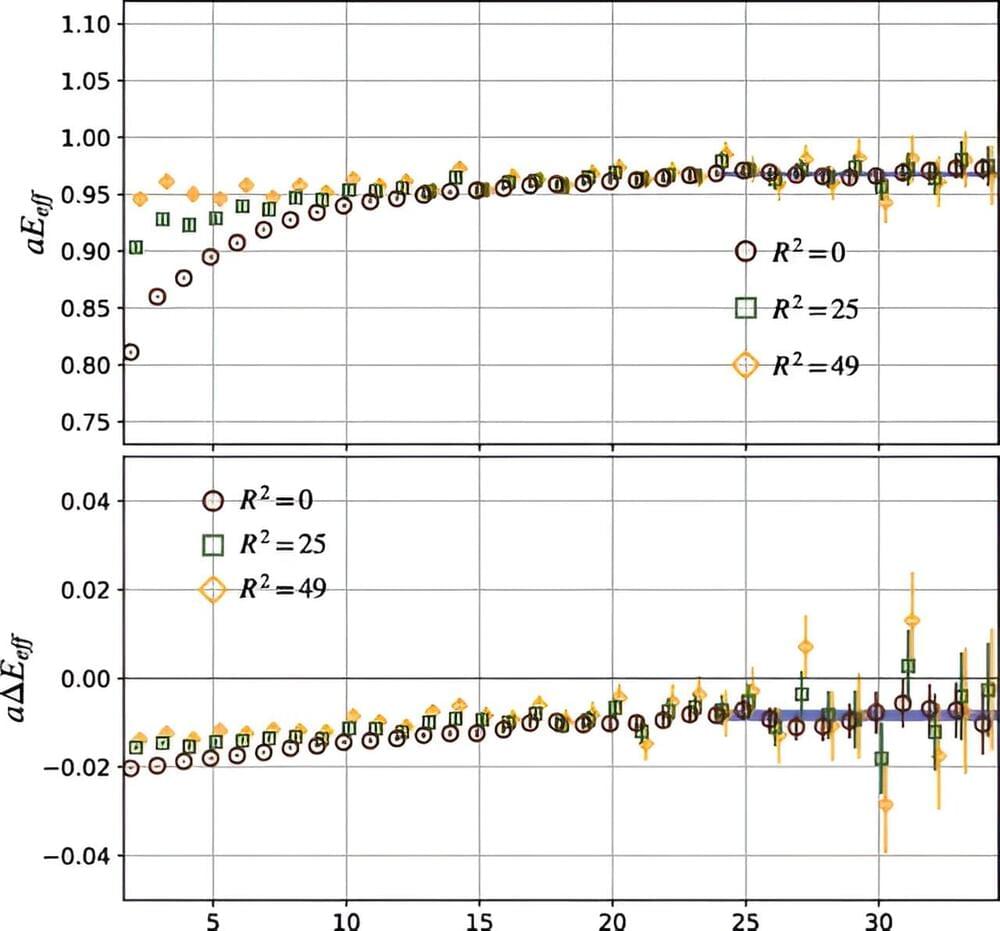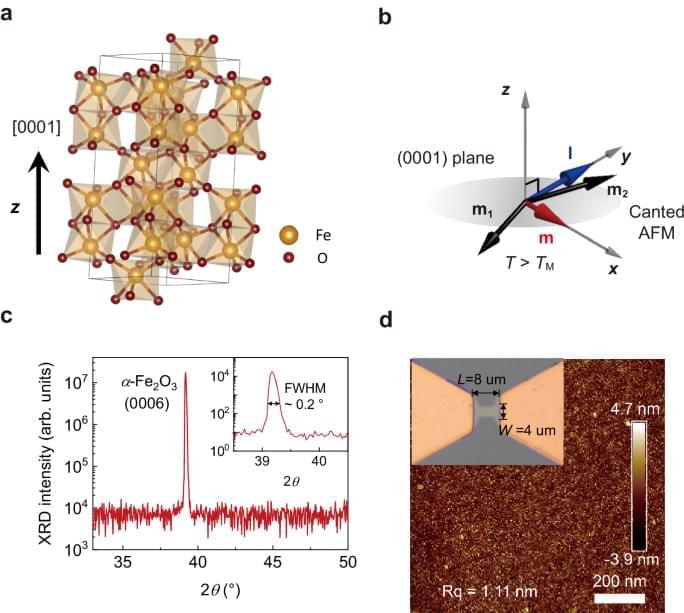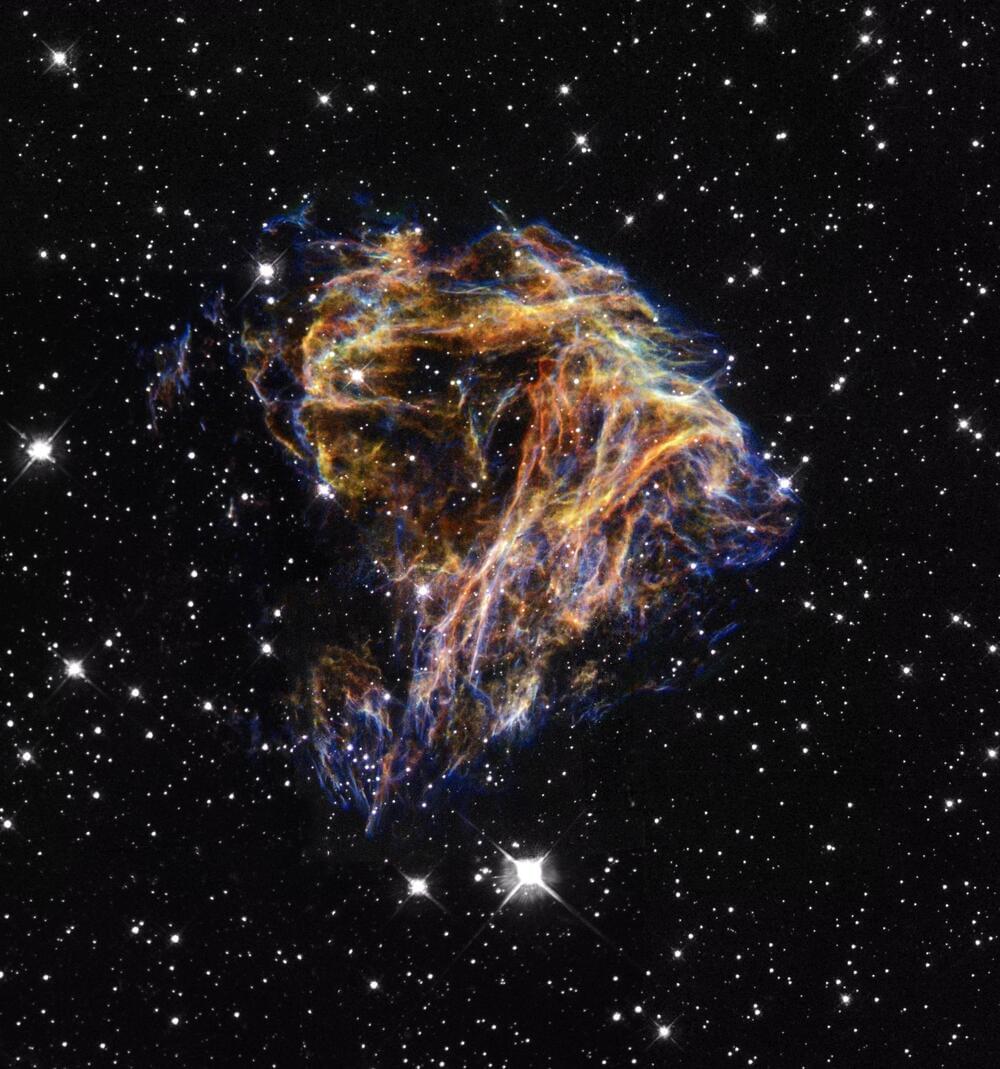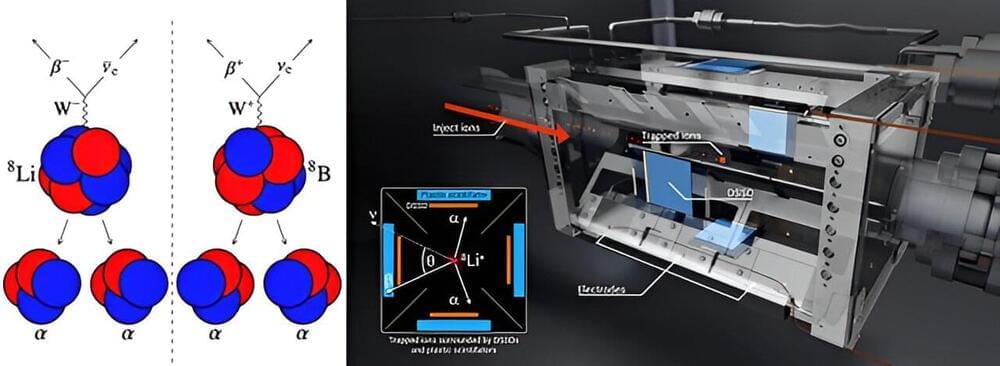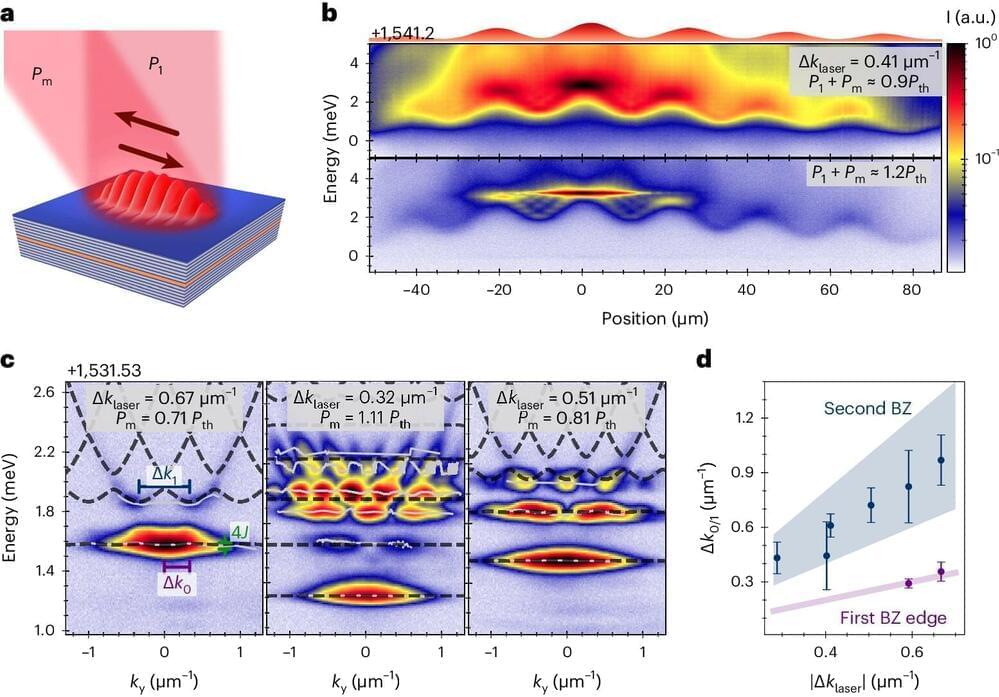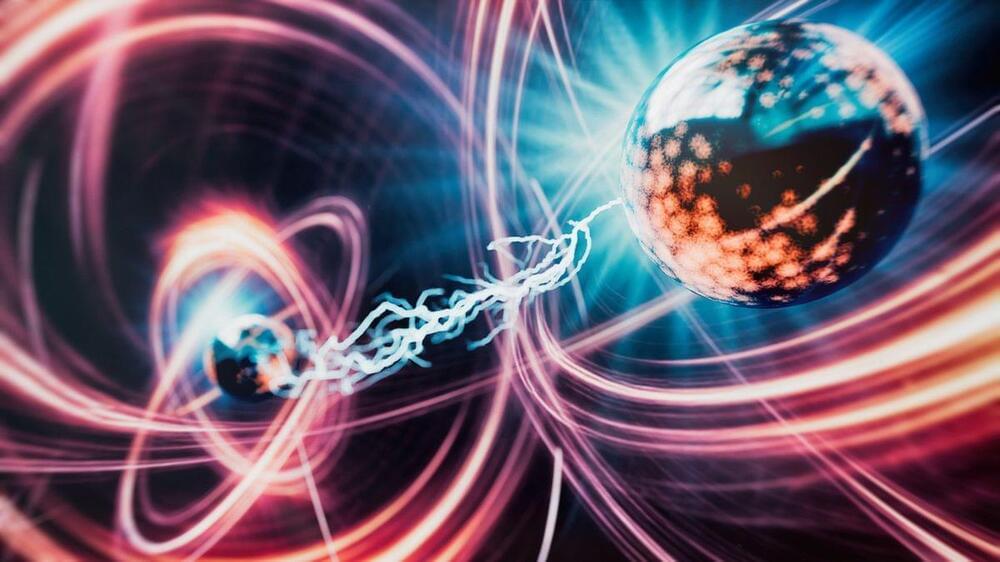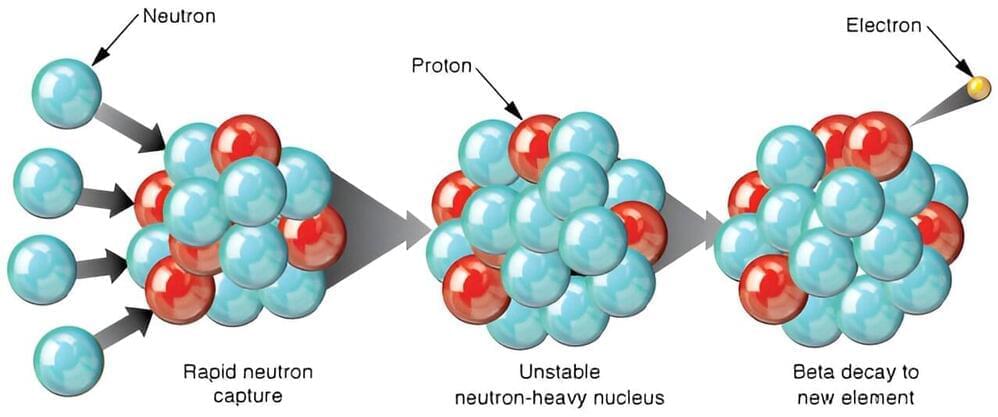
The first stars of the universe were monstrous beasts. Comprised only of hydrogen and helium, they could be 300 times more massive than the sun. Within them, the first of the heavier elements were formed, then cast off into the cosmos at the end of their short lives. They were the seeds of all the stars and planets we see today. A new study published in Science suggests these ancient progenitors created more than just the natural elements.
Except for hydrogen, helium, and a few traces of other light elements, all of the atoms we see around us were created through astrophysical processes, such as supernovae, collisions of neutron stars, and high-energy particle collisions. Together they created heavier elements up to Uranium-238, which is the heaviest naturally occurring element. Uranium is formed in supernova and neutron star collisions through what is known as the r-process, where neutrons are rapidly captured by atomic nuclei to become a heavier element. The r-process is complex, and there is still much we don’t understand about just how it occurs, or what its upper mass-limit might be. This new study, however, suggests that the r-process in the very first stars could have produced much heavier elements with atomic masses greater than 260.
The team looked at 42 stars in the Milky Way for which the elemental composition is well understood. Rather than simply looking for the presence of heavier elements, they looked at the relative abundances of elements across all the stars. They found that the abundance of some elements such as silver and rhodium doesn’t agree with the predicted abundance from known r-process nucleosynthesis. The data suggests that these elements are the decay remnants from much heavier nuclei of more than 260 atomic mass units.
